Can Cats Eat Peanut Butter? What Do Vets Say?
09.03.2022.
Cats might be picky eaters, but cat owners want to give their beloved pets delicious treats that might enrich their diets. Naturally, before we do that, we need to know whether that’s safe for our cats. Many cat owners want to know whether cats can eat peanut butter. After all, dogs seem to be crazy about peanut butter, so it should be good for cats as well, right? Well, the answer to this question is a bit more complicated. Here’s what you should know about cats and peanut butter.
Can cats consume peanut butter?
Simply put, cats can consume peanut butter. The precise and lengthy answer to the "can cats eat peanut butter?" question, on the other hand, is more complicated.
Peanut butter, in particular, is an excellent human snack. It's quick, healthy, and, most importantly, delicious. It also contains various nutrients such as proteins, healthy fats, vitamins, and minerals.
RELATED: Can Cats Eat Chocolate? Is it Safe?
Is Peanut Butter Safe for Cats to Eat?
Safe does not imply recommended. While peanut butter is safe for cats, it does not provide any nutritional value. Cats are obligatory carnivores, which means they should get most of their nutrition from animal protein sources such as chicken and fish.
As a result, feeding peanut butter to your cat can be compared to eating humans eating candy. Yes, you can have it, but it isn't good for you, and overeating can cause problems.
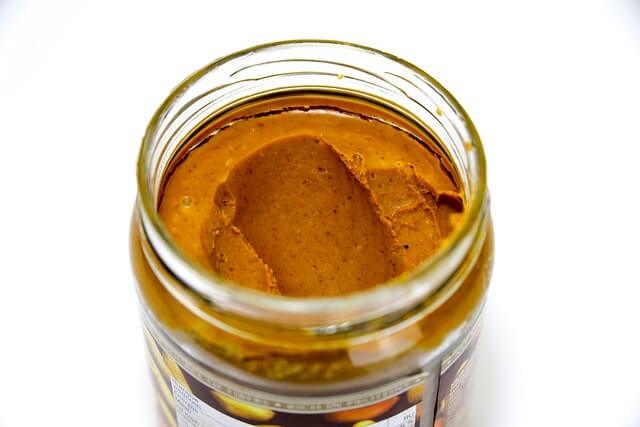
It is critical to note that only pure peanut butter is safe for cats. Other additives, such as preservatives and sweeteners, may be present in some brands of peanut butter and may be harmful to your cat.
Even ingredients that appear to be safe, such as salt and sugar, should be avoided because large amounts of them can be harmful to cats. Salt, for example, contains sodium, which can increase your cat's risk of developing heart disease. Sugar can cause your cat to gain weight.
Only healthy cats can safely eat peanut butter. Cats with pre-existing conditions such as diabetes or cancer should not consume peanut butter without consulting their veterinarian.
Risks of Consuming Peanut Butter
Giving your cat peanut butter carries some risks. Here are some of the risks you should be aware of before giving your cat peanut butter as a regular treat:
Choking hazard
Due to its thick and sticky texture, peanut butter can form a lump in your cat's throat, causing them to choke.
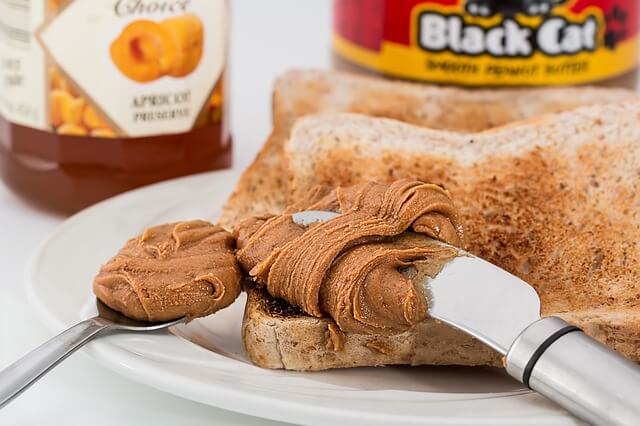
RELATED: Can Cats Eat Cheese? Here's What Your Vet Might Say
GI upset
Some cats' stomachs may be sensitive to peanut butter. Stomach upset, vomiting, diarrhea, and gassiness are all signs and symptoms of GI distress.
Allergies
Cats, like humans, can suffer from nut allergies. After giving your cat peanut butter, keep an eye out for symptoms like itching, hives, swelling, and GI distress. If you suspect your cat has allergies, seek emergency care right away because they can be fatal.
Xylitol
Some brands use artificial sweeteners like xylitol in place of sugar to sweeten their peanut butter. Xylitol is highly toxic to cats and most other pets. If your cat consumes xylitol-containing peanut butter, you should seek immediate medical attention. Depending on the circumstances, xylitol poisoning can range from mild to fatal.
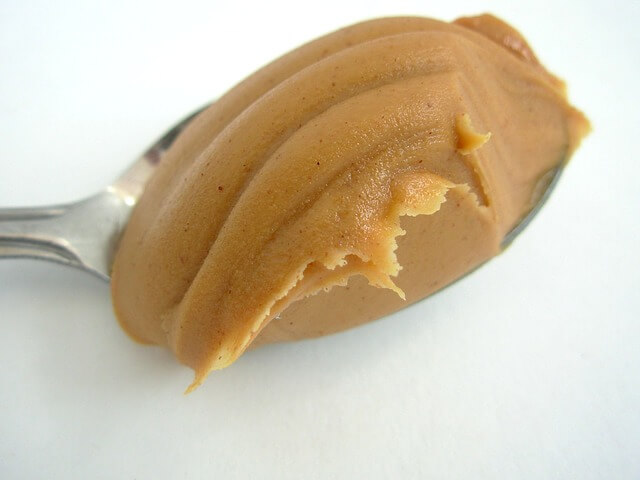
Calorie content
Peanut butter is high in calories, with a tablespoon containing nearly 100 calories. That is half of a 10-pound cat's daily calorie requirement. If you feed your cat peanut butter every day, the cat is at risk of gaining weight and developing diseases such as diabetes, obesity, and arthritis.
Poisoning by accident
Peanut butter is used as bait in mouse traps. As a result, you should not encourage outdoor cats to eat peanut butter.
Aflatoxins
Aflatoxins are toxins produced by mold that grows on plant foods such as corn and nuts. Aflatoxin-containing foods have been linked to an increased risk of liver disease and various types of cancer. Unfortunately, these aflatoxins are frequently found in peanuts.
RELATED: Can You Give Bread to Your Cat? Is It Safe?
What Is the Appropriate Amount of Peanut Butter for a Cat?
A cat should only eat half a tablespoon of peanut butter twice a week. Cats should get 90 percent of their calories from specially formulated foods. That leaves only 10 percent of calories available for treats.
If your cat requires 250 calories per day, only 25 of those calories should come from treats. The remaining 225 calories should come from specially formulated cat food. Only 25 calories are in a quarter-teaspoon of peanut butter.
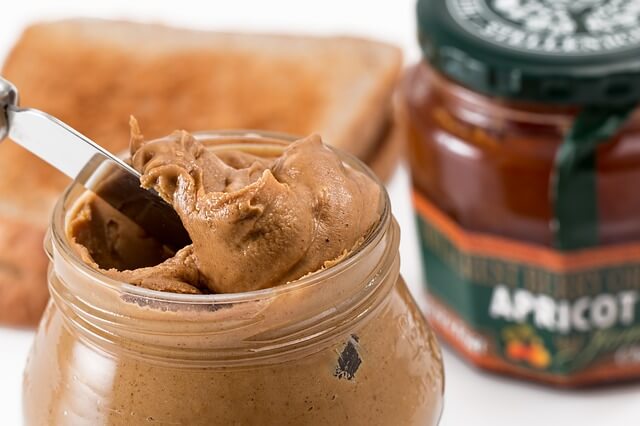
This means that treats like peanut butter should be used sparingly and only on occasion rather than as a regular part of a cat's diet. If you’re trying to hide a chunk of medication is one of the few objectively acceptable situations for giving your cat peanut butter. If your cat dislikes taking medication, hide it inside a small serving of peanut butter and give it to the cat as a treat.
Getting Peanut Butter for Cats
Before purchasing the best peanut butter for your cat, always read the ingredient list. Some of the ingredients to keep an eye out for are as follows:
- Sugar - Sugar is added to peanut butter by manufacturers to improve its flavor. Avoid sugar-sweetened peanut butter because it contains more calories and no nutrition.
- Salt - Avoid salty peanut butter because it raises your cat's sodium intake, putting it at risk for high blood pressure and other heart conditions.
- Preservatives - Certain food chemicals, such as sodium benzoate, may be safe for humans but not for cats, and it presents a risk of poisoning.
- Other nuts - Peanuts are safe for cats, but some nuts, such as macadamia, are toxic to them.
- Xylitol - Because of the popularity of low-carb diets, some brands have begun to replace sugar with sweeteners such as xylitol. This artificial sweetener is exceptionally hazardous in the presence of pets and, if consumed, can be fatal.
- Trans fats - Avoid any food containing trans fats or partially hydrogenated oils as an ingredient. Trans fats have been linked to an increased risk of chronic diseases such as heart disease and type 2 diabetes.
In addition to selecting the best peanut butter for your cat, consulting with your veterinarian on the subject will reduce the risk of complications.
RELATED: 7 Best Cat Treats You Can Pick
As you can see, peanut butter is not the best choice for cats. If your cat dislikes medications, you can substitute peanut butter with peanut butter-flavored cat treats or pill pockets.
World Cat Finder Team

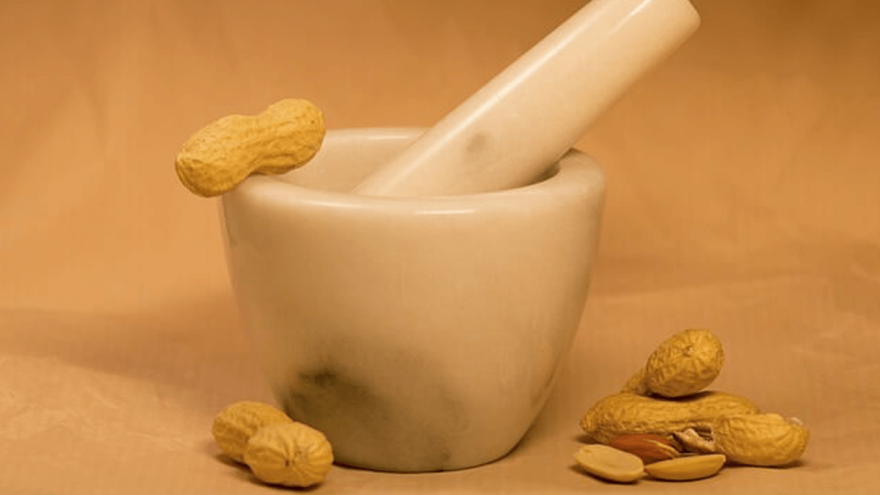

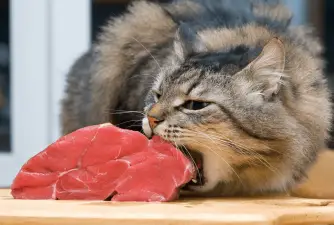
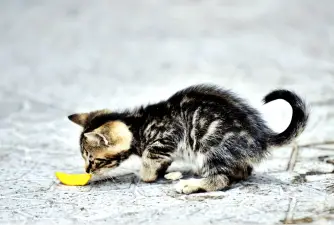


Share